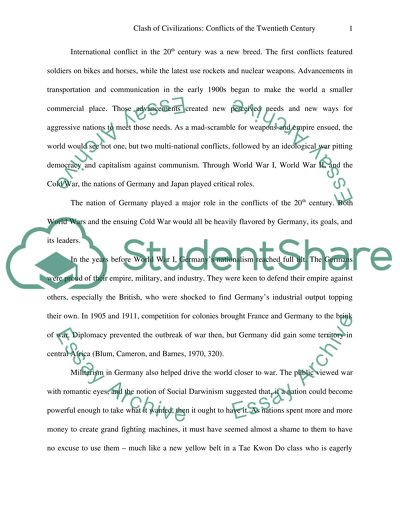Cite this document
(“Conflicts of the Twentieth Century Essay Example | Topics and Well Written Essays - 1500 words”, n.d.)
Retrieved from https://studentshare.org/miscellaneous/1533974-conflicts-of-the-twentieth-century
Retrieved from https://studentshare.org/miscellaneous/1533974-conflicts-of-the-twentieth-century
(Conflicts of the Twentieth Century Essay Example | Topics and Well Written Essays - 1500 Words)
https://studentshare.org/miscellaneous/1533974-conflicts-of-the-twentieth-century.
https://studentshare.org/miscellaneous/1533974-conflicts-of-the-twentieth-century.
“Conflicts of the Twentieth Century Essay Example | Topics and Well Written Essays - 1500 Words”, n.d. https://studentshare.org/miscellaneous/1533974-conflicts-of-the-twentieth-century.


